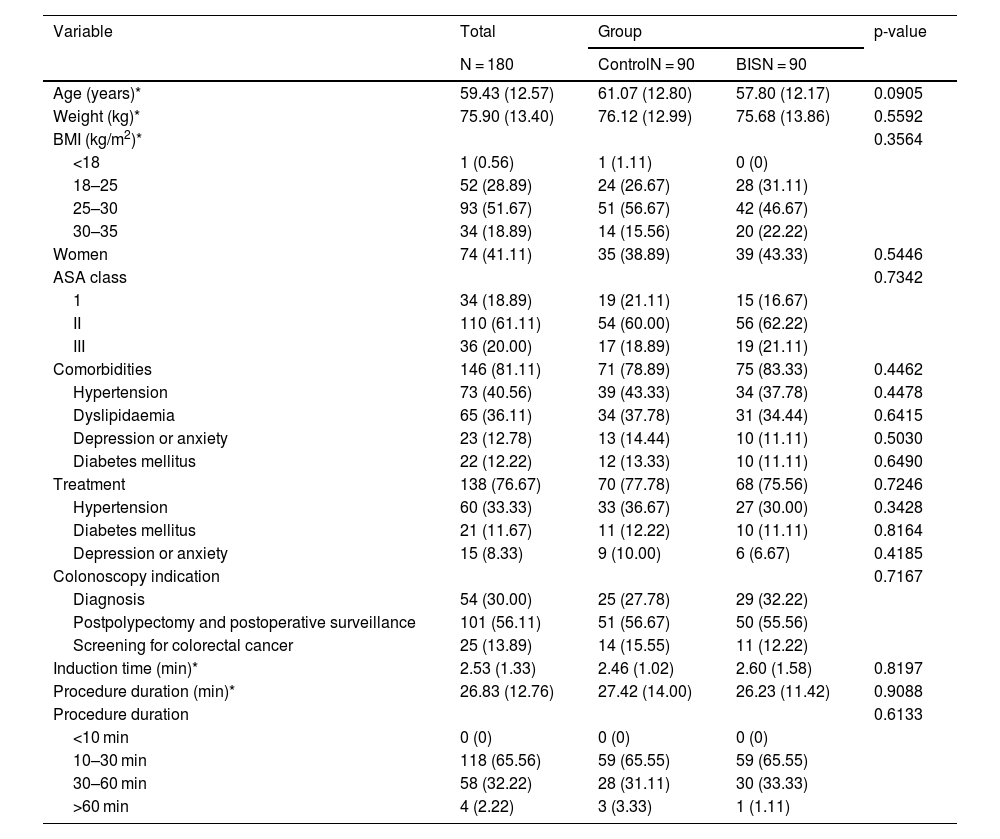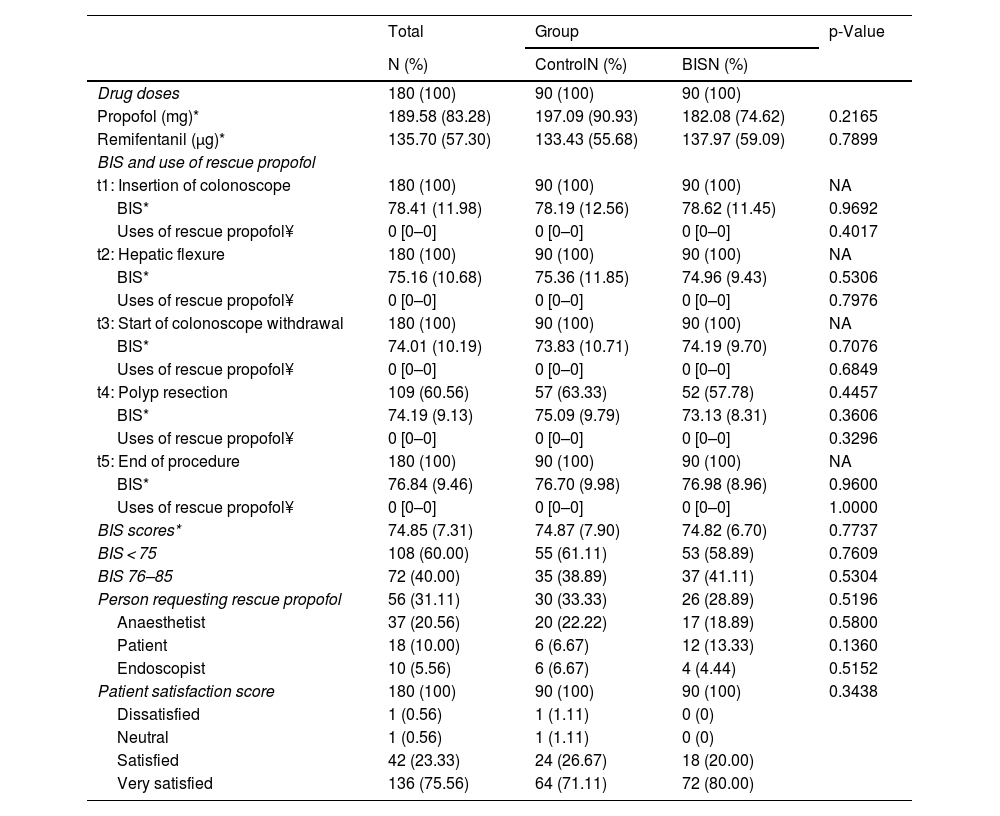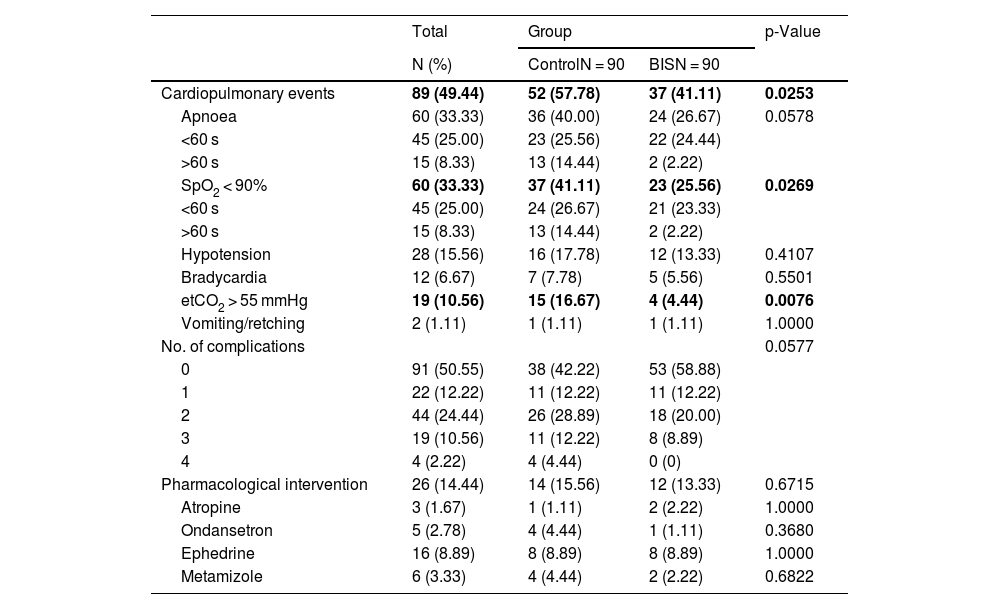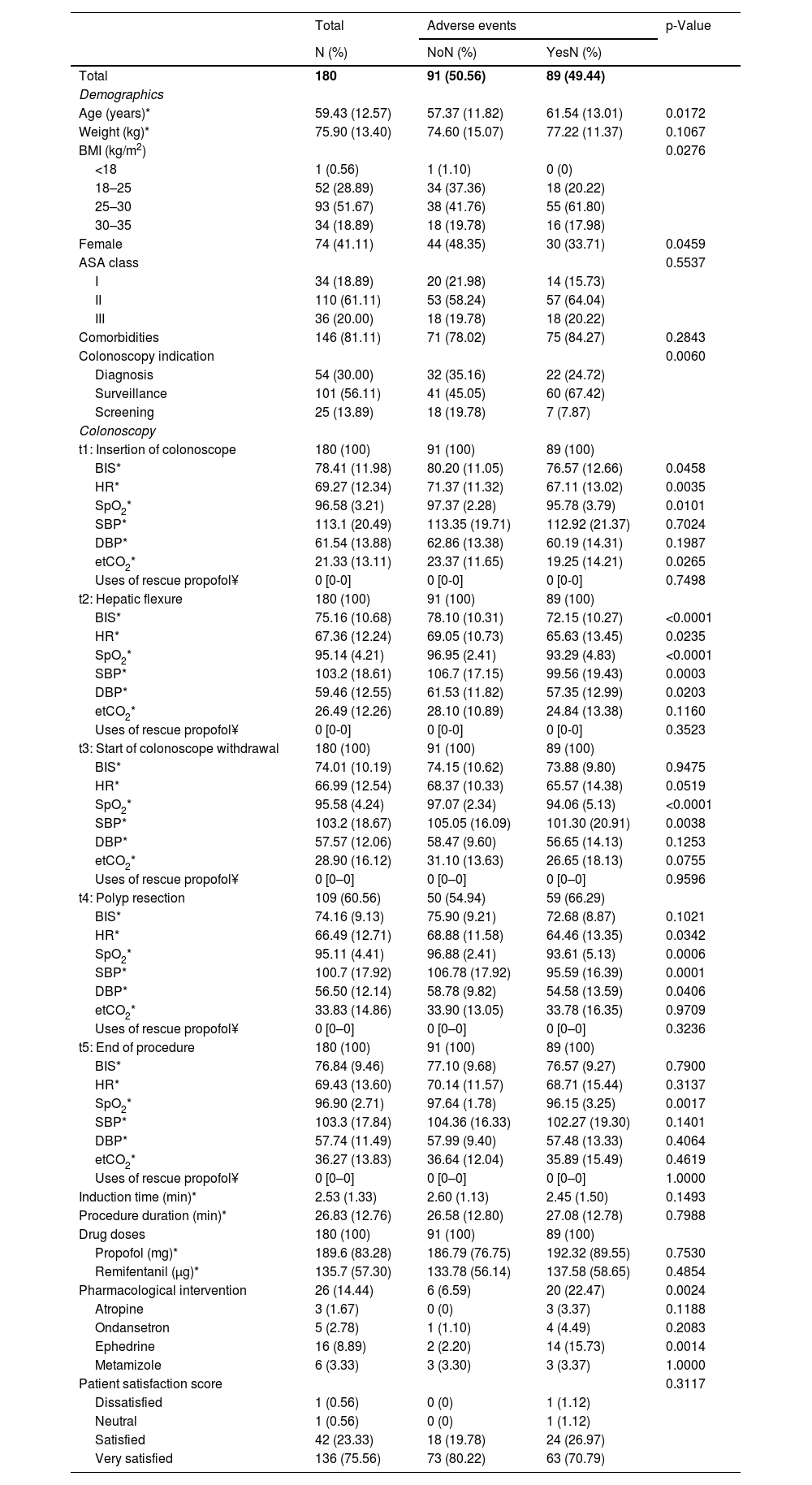Patients should be closely monitored during procedures under sedation outside the operating room, but it is unclear which type of monitoring is best. We investigated the efficacy and safety of BIS monitoring vs conventional monitoring for sedation during colonoscopy.
MethodsWe performed a double-blind clinical trial in 180 patients undergoing elective colonoscopy. Patients were randomized to 1) the BIS group or 2) a control group, in which sedation was monitored with a BIS monitor or the Ramsay Sedation Score, respectively. The primary outcome was the rate of sedation-induced adverse events in both groups. Secondary outcomes were the characteristics of patients who developed adverse events, and time during colonoscopy when these events occurred, propofol and remifentanil dosage, and patient satisfaction.
ResultsUnivariate analysis showed fewer cardiopulmonary complications in the BIS group (41.11% vs 57.78% in controls; p = 0.02). Multivariate analysis found a significantly higher risk of adverse events in older patients (95% CI, 1.013–1.091; p = 0.0087) and in men (95% CI, 1.129–7.668; p = 0.0272). These events were observed at the hepatic flexure. No significant differences between propofol or remifentanil dosage, use of rescue medication, and patient satisfaction were observed between groups.
ConclusionsOur data suggest that BIS monitoring during sedation in scheduled colonoscopies reduces adverse respiratory events. Although its routine use in sedation does not appear to be warranted, clinicians should take steps to identify patients with a higher risk of complications who might benefit from this type of monitoring.
Deberá monitorizarse estrechamente a los pacientes durante los procedimientos con sedación fuera del quirófano, aunque no está claro qué tipo de monitorización es mejor. Estudiamos la eficacia y seguridad de la monitorización de BIS frente a la monitorización convencional para sedación durante la colonoscopia.
MétodosRealizamos un ensayo clínico doble ciego en 180 pacientes sometidos a colonoscopia electiva. Se aleatorizó a los pacientes en 1) el grupo BIS o 2) el grupo control, en el que la sedación fue monitorizada con un monitor de BIS o con la Ramsay Sedation Score, respectivamente. El resultado primario fue la tasa de episodios adversos inducidos por la sedación en ambos grupos. Los resultados secundarios fueron las características de los pacientes que desarrollaron episodios adversos, y el momento de la colonoscopia al producirse dichos episodios, la dosificación de propofol y remifentanilo, y la satisfacción del paciente.
ResultadosLos análisis univariantes reflejaron menores complicaciones cardiopulmonares en el grupo BIS (41,11% frente a 57,78% en el grupo control; p = 0,02). El análisis multivariante reflejó un riesgo significativamente mayor de episodios adversos en los pacientes mayores (95% IC, 1,013-1,091; p = 0,0087) y en varones (95% IC, 1,129-7,668; p = 0,0272). Dichos episodios se observaron en el ángulo hepático. No se observaron diferencias significativas entre la dosificación de propofol o remifentanilo, el uso de medicación de rescate y la satisfacción del paciente entre los grupos.
ConclusionesNuestros datos sugieren que la monitorización del BIS durante la sedación en las colonoscopias programadas reduce los episodios respiratorios adversos. Aunque su uso rutinario en los procesos de sedación no parece estar garantizado, los clínicos deberán tomar medidas para identificar a los pacientes con mayor riesgo de complicaciones, que podrían beneficiarse de este tipo de monitorización.












